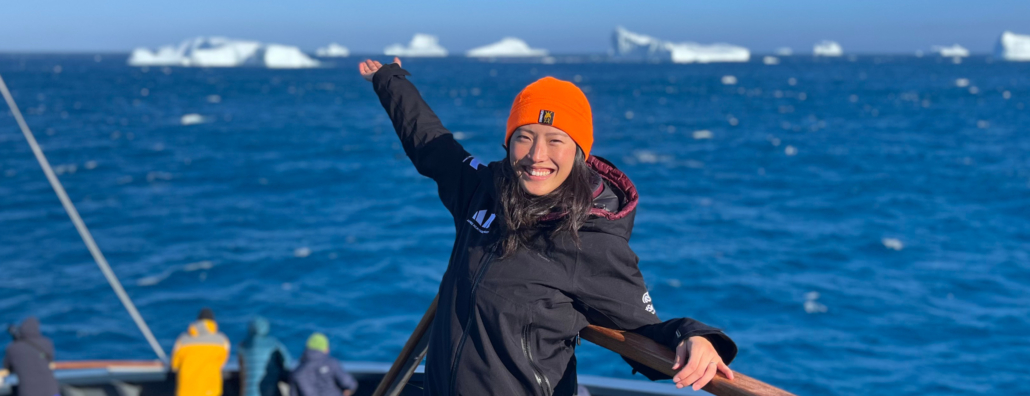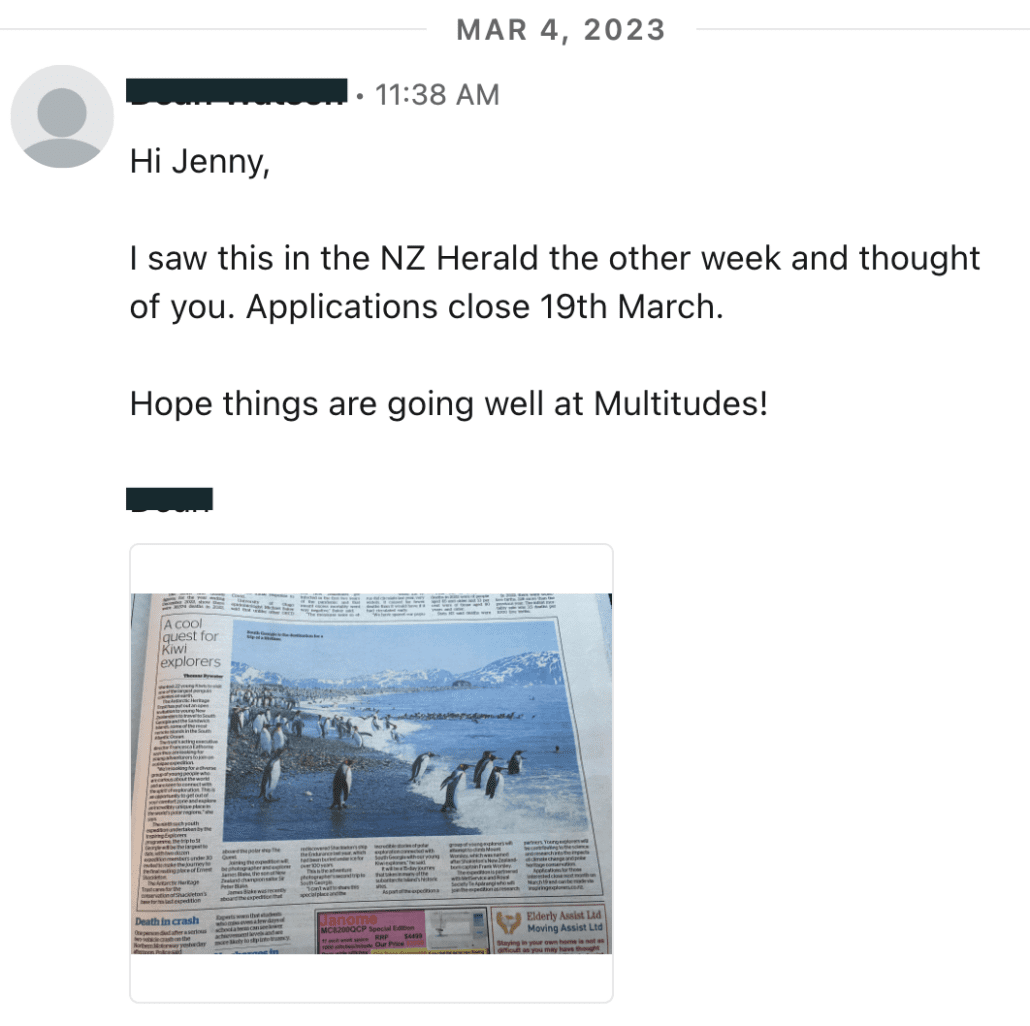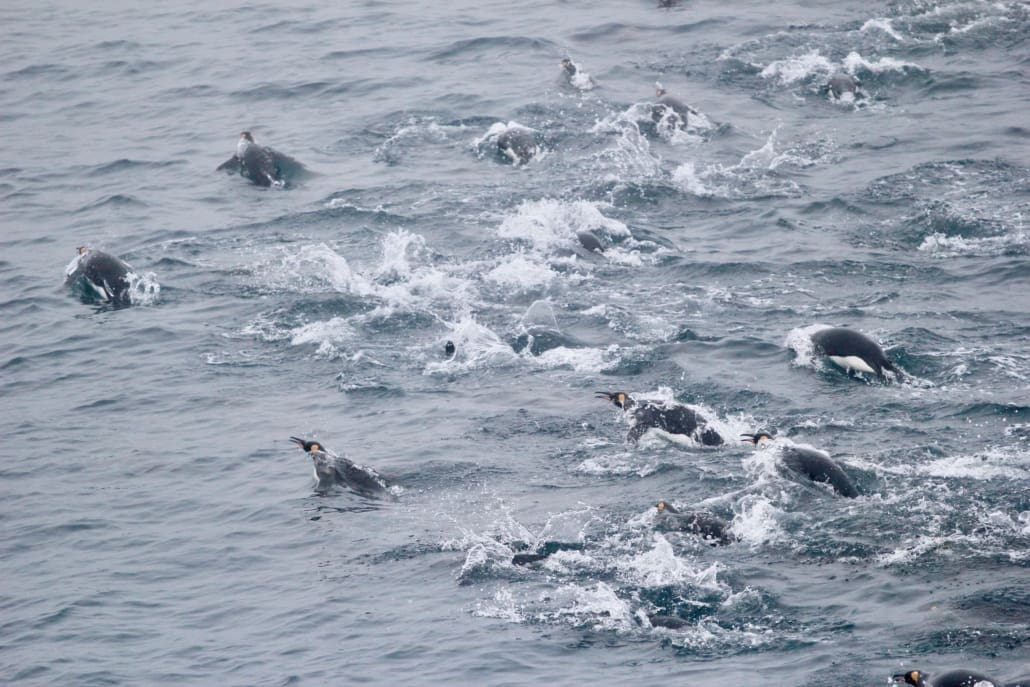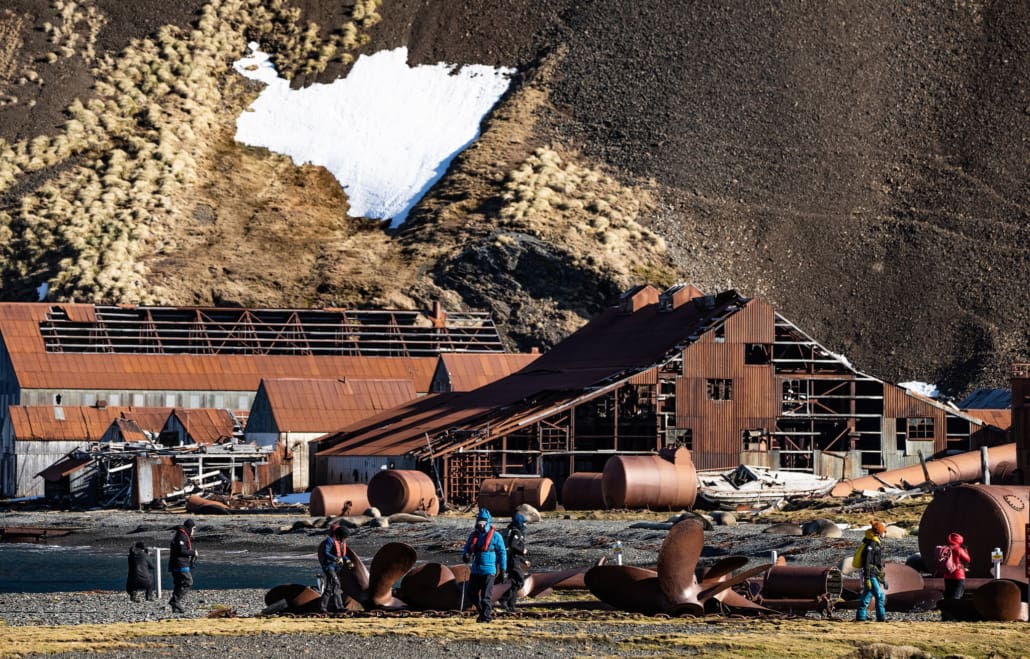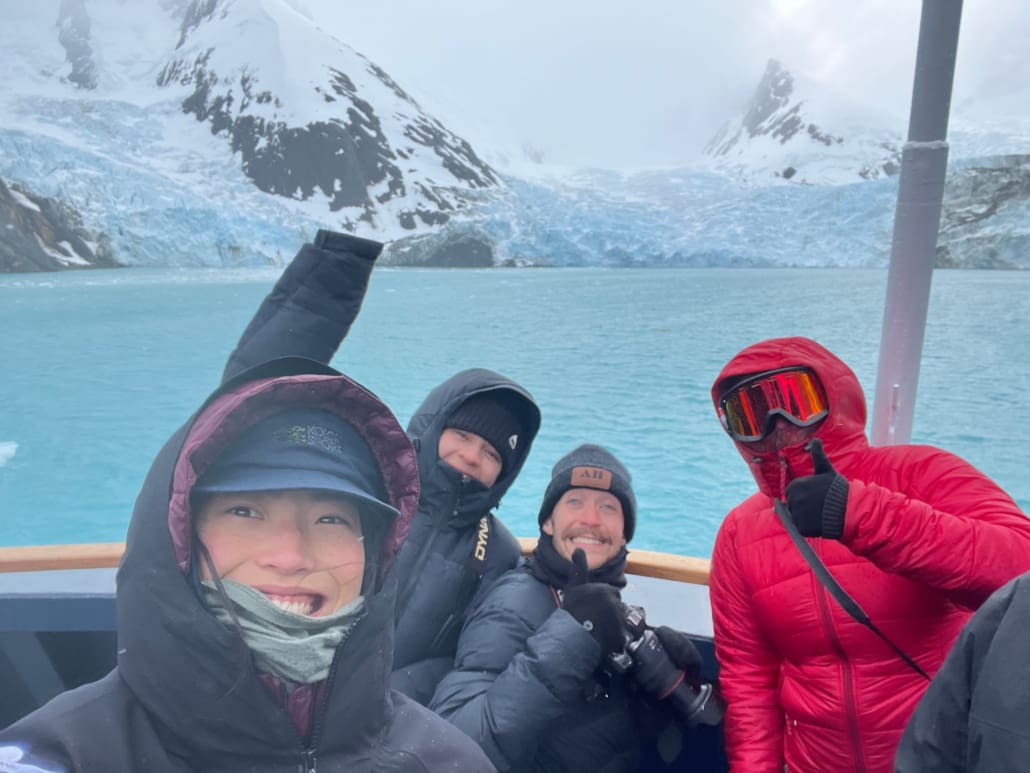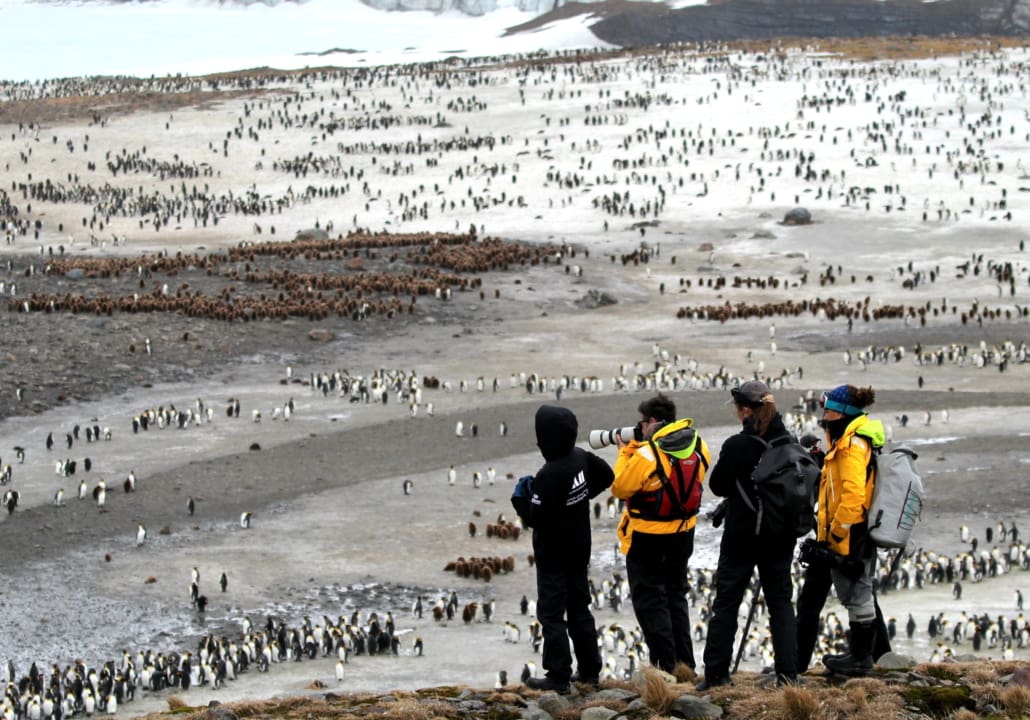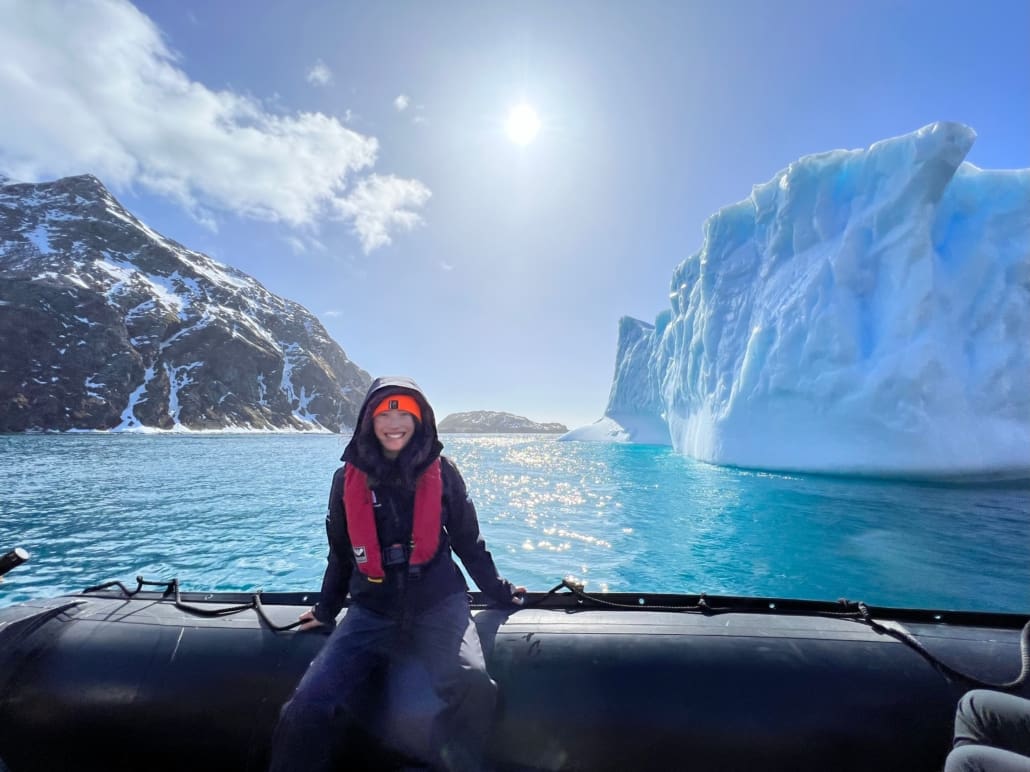Expedition Blog – Jenny Sahng, South Georgia 2023
Inspiring Explorer Jenny Sahng, excited to sail among icebergs in Drygalski Fjord, South Georgia. © AHT
Jenny Sahng was one of 22 young New Zealanders who travelled with the Trust to South Georgia in October 2023 for our ninth Inspiring Explorers Expedition™ to honour the centenary year of Sir Ernest Shackleton’s final expedition, the ‘Quest’.
It’s May 2022. I’m in a little book club with some friends. The next person on the roster picks a book called Endurance by Alfred Lansing. I have never read a book about polar exploration before.
It’s March 2023. An old colleague sends a photo of a newspaper clipping, advertising an expedition to South Georgia for a group of young Kiwis. A year earlier, I would have thought, “I didn’t know they had penguins in southern America. Or Central Asia.” Instead, I think, “WHAT?!?!”
It’s May 2023. One year earlier, I read a book about Sir Ernest Shackleton’s failed Imperial Trans-Antarctic Expedition and the epic two-year survival journey that followed. Today I received a phone call.
Through this series of fortunate events, I found myself on the Magellan Explorer as one of the 22 Inspiring Explorers™ on an expedition to this unique ecosystem and to connect with its heritage of Antarctic exploration. After scrounging up every documentary on South Georgia and every bit of winter gear that I could find, I was on a ship leaving the Falkland Islands. We were heading east, towards that bit of the globe with not much there at all. Or so I thought.
King penguins swimming in the ocean. © AHT/Charlie Thomas
The richness of this three-week journey, and the friendships and new ideas that have continued to coalesce afterwards, are difficult to distil into a blog post. I’ll attempt to outline three key thoughts that are front of mind for me:
Observation is the first step to connection
For most of my time on South Georgia Island, I did a lot of staring. I stared at penguins. I stared at seals. I stared at waves. I stared at wisps of kelp frozen in ice.
Through these fleeting slices of South Georgian life, I was reminded of the incredible complexity and balance of these ecosystems. By observing the animals, I was reminded of their strength, their adaptation, the magic in how they have recreated a home in this regenerated haven. By observing the old whaling station ruins, the rusting scrap metal and the huge whale-boiling tanks, I was reminded that it wasn’t always this way. By observing the weather, as part of the Science outreach team collecting weather and ocean temperature recordings, I could see the interconnectedness of these systems, and my role as a human within them.
Inspiring Explorers exploring the old whaling yard at Grytviken, with elephant seals lounging among the remains. © Antarctica21/Rodrigo Moraga
Connection comes in many forms
With all the biodiversity, natural wonder, history, and people to share this trip with, the connections I formed were intense and varied. We learnt about iceberg classification and polar exploration history from the experienced guides. Among ourselves we talked about politics. We shared our hopes and fears around climate change. We felt immense wonder and sadness for the groups of fluffy penguin chicks huddling together for warmth in the unseasonably wet weather. I cherish the memories of the lost-in-thought walks, the silent hugs and cries. I also look back fondly at the moments of goofiness, the board games, the songs, the on-board shenanigans, with this assorted group both young and old.
Inspiring Explorers Jenny Sahng, Tegan Allpress, Cole Yeoman, and Lily Green in front of Risting Glacier Terminus at Drygalski Fjord. ©AHT/Jenny Sahng
Inspiring Explorers Millie Mannering (third from left) and Jenny Sahng (left) listening to guides Rodrigo Moraga and Ana Carla (in yellow) explaining that the king penguin colonies at St Andrews Bay looked far smaller than previous years. The glacier in the background had also receded a lot from what we’d seen in documentaries and photos. ©AHT/Charlie Thomas
You have much more impact than you think
The impact of human activity might feel invisible, until it’s not. On South Georgia, an island in recovery from recent devastation by introduced species and commercial whaling, the impact of each and every individual was amplified.
There were stringent biosecurity measures to make sure that the smallest invasive seed didn’t land on the island. The effect of sharply warming ocean temperatures was seen in the excess of icebergs broken off from Antarctica, receding glaciers, and thinner, smaller penguin colonies.
Jenny Sahng cruising close to an iceberg on a Zodiac. © AHT/Kelly Waghorn
On the other hand, the impact of the stories shared, the connections made, and the observations recorded on paper and in memory also felt magnified. Each conversation, idea, and word of encouragement has already had ripple effects that continue to grow as we look to turn these reflections into actions. Just like my friend who suggested the book club book, my colleague who sent the newspaper clipping, the folks on the ship I shared a meal with, or the penguins I watched going about their life, everyone has an impact. Now, it’s up to us to keep these ripple effects going.

